Do you check your blood pressure often? Do you know what your blood pressure numbers 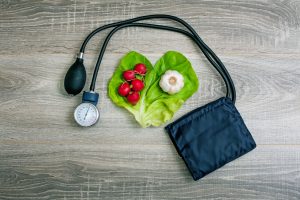 are? If you are a young adult, it is very likely that these questions have not been at the forefront of your mind when it comes to your health. A recent study showed that in 2013-2014, only half of the 6.7 million young adults from 18 to 39 years old were treated for high blood pressure. Meanwhile, only 40-percent got their blood pressure under control. However, blood pressure control is not only important for heart health, but for brain health as well. Recent studies have linked normal blood pressure levels with improved cognition in older adults.
are? If you are a young adult, it is very likely that these questions have not been at the forefront of your mind when it comes to your health. A recent study showed that in 2013-2014, only half of the 6.7 million young adults from 18 to 39 years old were treated for high blood pressure. Meanwhile, only 40-percent got their blood pressure under control. However, blood pressure control is not only important for heart health, but for brain health as well. Recent studies have linked normal blood pressure levels with improved cognition in older adults.
What is blood pressure and what is considered a healthy level?
The American Heart Association defines high blood pressure, or hypertension, as 140/90. The top number is the systolic pressure, or pressure at contraction. Furthermore, the bottom number is the diastolic pressure, or pressure in between beats. A normal blood pressure level is 120/80.
Risks of hypertension
You may think that hypertension is only related to heart health. However, a high blood pressure can increase risk of stroke, which affects the vessels in the brain. In addition, those with diabetes may have a higher risk of heart attack or stroke. Over time, high blood glucose levels can damage the blood vessels as well as the nerves that control your heart and blood vessels. Therefore, those with diabetes should be extra careful to keep track of their blood pressure numbers to make sure they are in a healthy zone.
In addition to heart-related conditions, hypertension can affect brain health. A recent study has found that older adults whose systolic blood pressure was above 150 mmHg had higher levels of mental decline than those below 120 mmHg. This study looked at 1700 adults from 70-79 years old over a 10-year period. These individuals in the study were being treated for hypertension, but initially had no mental decline. Those highest numbers in mental decline were seen in African-American older adults. Such declines were linked to health conditions such as kidney disease, stroke, and heart health.
How to improve heart health
Besides medications, there are many ways you can work towards improving your heart health.
- Limit processed food intake such as packaged and canned foods. Crackers, chips, canned soups, sauces, gravies, deli meats, sausages, and hot dogs, as well as frozen meals are all high in sodium. Stick to fresh foods whenever possible. Also, frozen fruits and veggies without added sauces and sugars are good choices for a heart-healthy diet.
- Stay active often by engaging in moderate activity most days. Walking, biking, dancing, gardening, or swimming are some moderate activities to try. An activity is moderate if you can hold a conversation, but cannot sing while performing it. Stay active for at least 30 minutes a day, 5 days a week for great heart health benefits.
- Eat a fiber-rich diet full of fruits, vegetables, and whole grains like oats, quinoa, brown rice, wild rice, and whole grain breads. Consume at least 2 cups of vegetables a day at meal times. Also, add in some low-glycemic fruits such as apples, oranges, and berries for snacks.
- Stop smoking if you smoke, and don’t start if you don’t. Smoking constricts the blood vessels, which makes it hard for oxygen to flow to your body’s tissues and organs. Quitting smoking is not easy, so visit Smokefree.gov on resources to help you quit.
- Keep track of your heart health numbers. Your cholesterol, triglycerides, blood pressure, and blood glucose are all important numbers to check each year. Check more often if you have a family history of diabetes or heart disease. Also, check your numbers at least every 6 months if you have a diagnosis of prediabetes, diabetes, or heart disease.
- Add a heart healthy supplement to your regimen such as Presura by Vita Sciences. Presura contains heart-healthy compounds such as Hawthorn Berry, Niacin, and Garlic extract. These compounds have been found to support healthy blood pressure levels. Be sure to check with your doctor before starting any new supplement regimen.
-written by Staci Gulbin, MS, MEd, RD, LDN
Sources:
Medline Plus (August 21, 2017) “Lower Blood Pressure Best for Seniors’ Minds” https://medlineplus.gov/news/fullstory_167931.html
Medline Plus (August 28, 2017) “Young Adults may be ignoring high blood pressure” https://medlineplus.gov/news/fullstory_168063.html
National Institute of Diabetes and Digestive and Kidney Diseases (February 2017) “Diabetes, Heart Disease, and Stroke” https://www.niddk.nih.gov/health-information/diabetes/overview/preventing-problems/heart-disease-stroke
 Do you skip breakfast? Does your busy schedule make it hard to eat in the morning? Are you just not hungry in the early hours of the day? You may have heard that breakfast is the most important meal of the day. Recent research has found that this may be true. Skipping your morning meal can deprive your body of many important nutrients vital to overall health.
Do you skip breakfast? Does your busy schedule make it hard to eat in the morning? Are you just not hungry in the early hours of the day? You may have heard that breakfast is the most important meal of the day. Recent research has found that this may be true. Skipping your morning meal can deprive your body of many important nutrients vital to overall health. this spectacular event. However, just as important as where you will be viewing the eclipse is HOW you will be viewing it. It is important to have the proper eye gear and eye health awareness to prevent the eclipse eye injury.
this spectacular event. However, just as important as where you will be viewing the eclipse is HOW you will be viewing it. It is important to have the proper eye gear and eye health awareness to prevent the eclipse eye injury.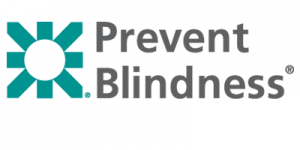 for more information on how you can protect your eyes.
for more information on how you can protect your eyes.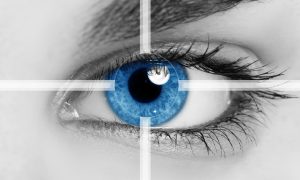 predictions from coming true.
predictions from coming true. difficult. A recent study has found that low estrogen levels in some women may be linked to depression.
difficult. A recent study has found that low estrogen levels in some women may be linked to depression. with depression learn more about the condition. Also, this foundation helps support research efforts to find better treatments for those with depression.
with depression learn more about the condition. Also, this foundation helps support research efforts to find better treatments for those with depression.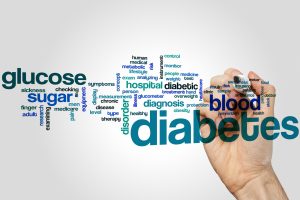 recent report by the Centers for Disease Control and Prevention (CDC) says that over 100 million people in the United States have diabetes or prediabetes.
recent report by the Centers for Disease Control and Prevention (CDC) says that over 100 million people in the United States have diabetes or prediabetes.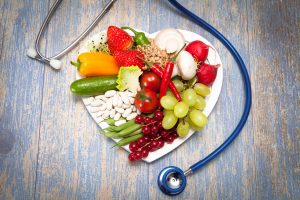
 Do you spend most of your time indoors? Does your job involve sitting at a desk all day seeing only the light from your desk lamp? If you do work indoors often, do you find yourself getting easily tired, maybe having joint aches and pains, or trouble controlling your blood glucose levels? A recent study has found that your office job could be robbing you of the sunshine vitamin D and may be in turn causing a vitamin D deficiency.
Do you spend most of your time indoors? Does your job involve sitting at a desk all day seeing only the light from your desk lamp? If you do work indoors often, do you find yourself getting easily tired, maybe having joint aches and pains, or trouble controlling your blood glucose levels? A recent study has found that your office job could be robbing you of the sunshine vitamin D and may be in turn causing a vitamin D deficiency. reflux occurs for twice a week for more than a few weeks. Uncontrolled GERD can lead to respiratory problems or conditions such as esophagitis, which is an inflammation of the esophagus.
reflux occurs for twice a week for more than a few weeks. Uncontrolled GERD can lead to respiratory problems or conditions such as esophagitis, which is an inflammation of the esophagus. However, research shows that yoga can soothe back pain as well as physical therapy.
However, research shows that yoga can soothe back pain as well as physical therapy.